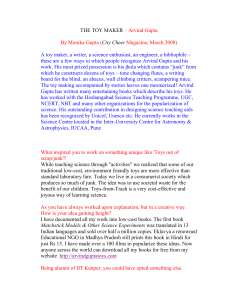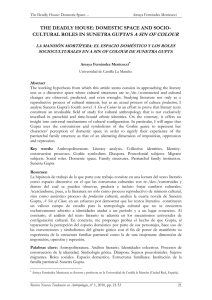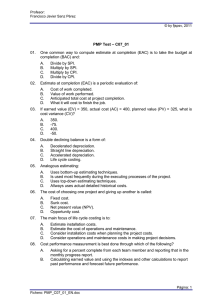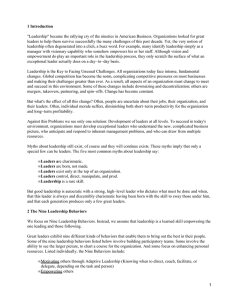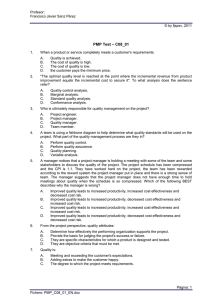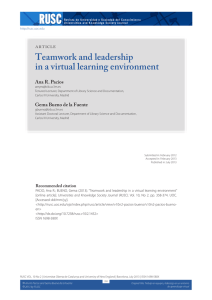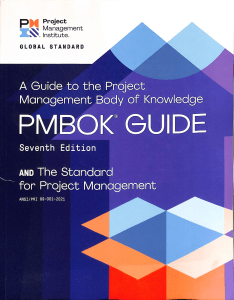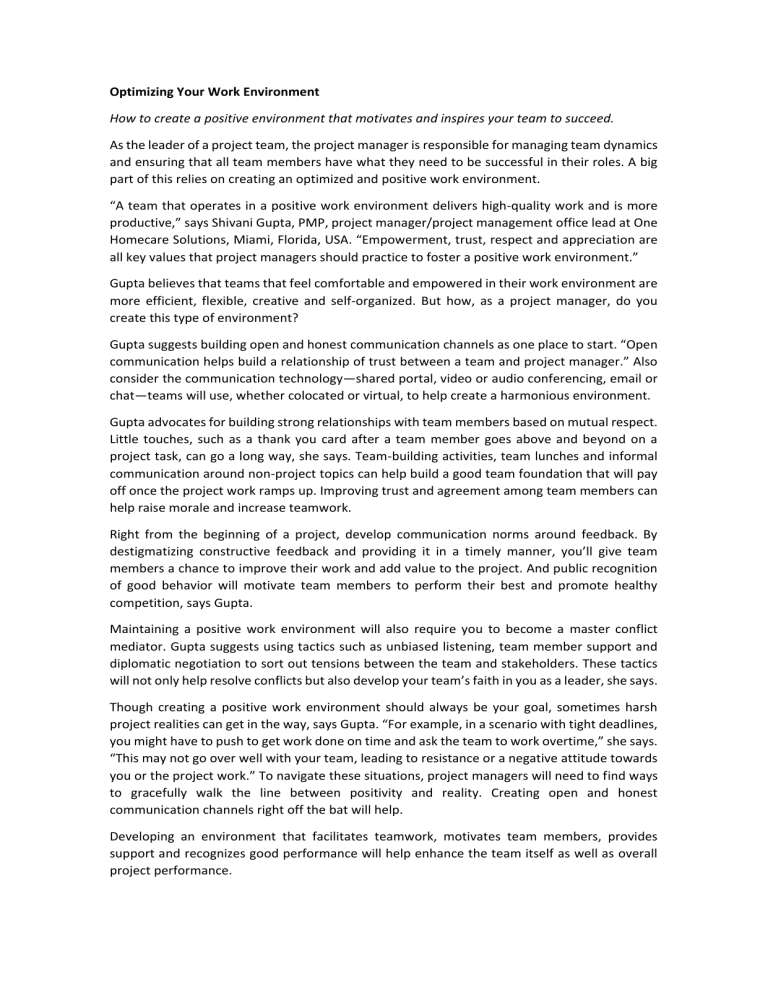
Optimizing Your Work Environment How to create a positive environment that motivates and inspires your team to succeed. As the leader of a project team, the project manager is responsible for managing team dynamics and ensuring that all team members have what they need to be successful in their roles. A big part of this relies on creating an optimized and positive work environment. “A team that operates in a positive work environment delivers high-quality work and is more productive,” says Shivani Gupta, PMP, project manager/project management office lead at One Homecare Solutions, Miami, Florida, USA. “Empowerment, trust, respect and appreciation are all key values that project managers should practice to foster a positive work environment.” Gupta believes that teams that feel comfortable and empowered in their work environment are more efficient, flexible, creative and self-organized. But how, as a project manager, do you create this type of environment? Gupta suggests building open and honest communication channels as one place to start. “Open communication helps build a relationship of trust between a team and project manager.” Also consider the communication technology—shared portal, video or audio conferencing, email or chat—teams will use, whether colocated or virtual, to help create a harmonious environment. Gupta advocates for building strong relationships with team members based on mutual respect. Little touches, such as a thank you card after a team member goes above and beyond on a project task, can go a long way, she says. Team-building activities, team lunches and informal communication around non-project topics can help build a good team foundation that will pay off once the project work ramps up. Improving trust and agreement among team members can help raise morale and increase teamwork. Right from the beginning of a project, develop communication norms around feedback. By destigmatizing constructive feedback and providing it in a timely manner, you’ll give team members a chance to improve their work and add value to the project. And public recognition of good behavior will motivate team members to perform their best and promote healthy competition, says Gupta. Maintaining a positive work environment will also require you to become a master conflict mediator. Gupta suggests using tactics such as unbiased listening, team member support and diplomatic negotiation to sort out tensions between the team and stakeholders. These tactics will not only help resolve conflicts but also develop your team’s faith in you as a leader, she says. Though creating a positive work environment should always be your goal, sometimes harsh project realities can get in the way, says Gupta. “For example, in a scenario with tight deadlines, you might have to push to get work done on time and ask the team to work overtime,” she says. “This may not go over well with your team, leading to resistance or a negative attitude towards you or the project work.” To navigate these situations, project managers will need to find ways to gracefully walk the line between positivity and reality. Creating open and honest communication channels right off the bat will help. Developing an environment that facilitates teamwork, motivates team members, provides support and recognizes good performance will help enhance the team itself as well as overall project performance. Developed by PMI for PMIstandards+ with contributions from Shivani Gupta, PMP. ©PROJECT MANAGEMENT INSTITUTE, INC.
